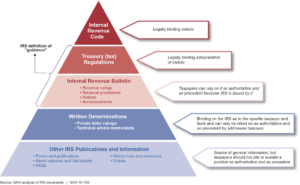Within the Internal Revenue Code (Code) is a rule commonly known as the “mailbox rule” or the “timely mailed, timely filed rule.” Under Code Section 7502(b), the date that an item—including a Tax Court petition—is postmarked and mailed can also be the date the item is considered filed. When an item is received after the filing deadline, the mailbox rule can make all the difference. There are, however, procedural requirements which must be satisfied. In Pearson v. Commissioner, the Tax Court, in a court-reviewed opinion, held that a Tax Court petition mailed with a Stamps.com postage label was timely filed under the mailbox rule.
Taxpayers generally have 90 days to file a petition with the Tax Court after receiving a notice of deficiency. In Pearson, the Tax Court received the taxpayers’ petition one week after the 90-day period expired, but the envelope in which the petition was mailed bore a Stamps.com postage label dated within the 90-day period. The administrative assistant who created the Stamps.com postage label supplied the court with a declaration under penalty of perjury stating that she went to a US Post Office the same day as the postage label date and mailed the petition. (more…)
read more

 Subscribe
Subscribe





